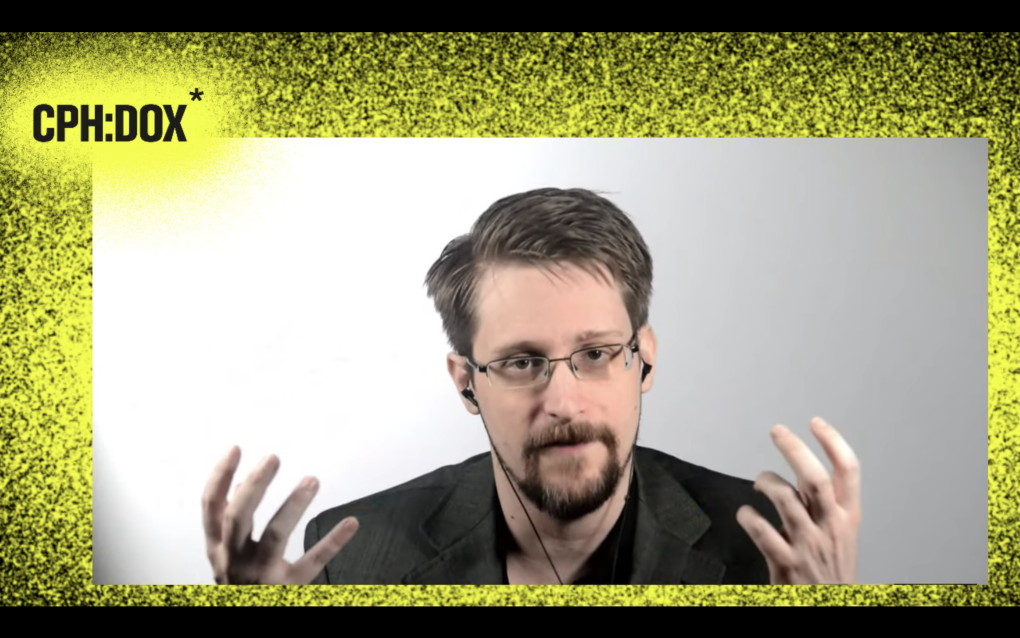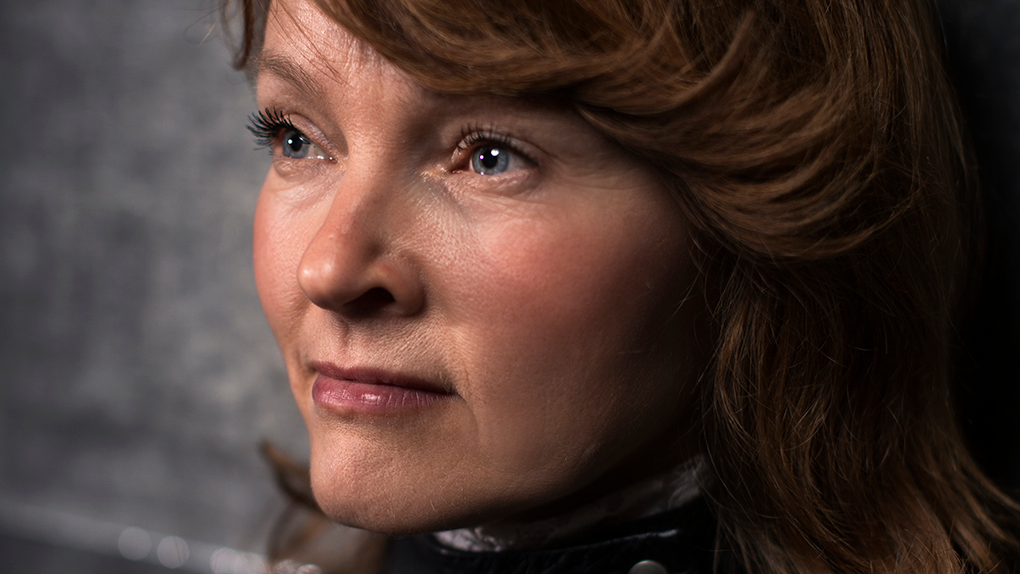
Two months ago, the idea of mounting an international film festival digitally was all but unthinkable. But, as one of the first major film events after the breakout of the pandemic, CPH:DOX proved that the idea was not as farfetched as it might have seemed.
In a week’s time, CPH:DOX head and founder Tine Fischer and her crew successfully reorganised audience and industry activities that normally draw more than 100,000 festivalgoers and 2,000 industry delegates to cinemas in Copenhagen by putting everything online instead.
We made a fundamental decision
“Two days before the lockdown, we started researching a plan B for this year’s festival,” Fischer says. “On the evening before the lockdown, we made a fundamental decision: the festival would not be shut down but be held digitally – not as a pale imitation of itself but with the same scope as the physical festival.”
CPH:DOX first reached out to their longtime partner, the streaming platform Festival Scope. “The day before the lockdown, we made a deal enabling us to stream 40 films from the festival programme,” Fischer says.
Only after the lockdown took effect did they begin the work of calling up production companies and rightsholders and convincing them to premiere their films online.
“We knew this would be an issue. What can you do for a film when it suddenly has to premiere on a streaming platform instead of in theatres? Will the film just end up getting lost in the crowd?”
The CPH:DOX team worked round the clock to make sure the normal framework for a world premiere was in place: films in competition would still be judged by an international jury, and the entire programme would be made available to an active market of buyers and distributors, and be reviewed both internationally and nationally.
“Across the board we met with tremendous support, confirming that we were doing the right thing. Journalists elected to ramp up their coverage of the festival, and production companies and rightsholders quickly agreed to let us show their films online, even though there might be trouble down the road in terms of broadcasting rights,” Fischer says.
“At the time, we made it very clear that this was not just a temporary digital streaming service for Danish viewers but an attempt to raise the whole festival into a digital universe, with the continued support of industry actors. We couldn’t guarantee it would be a success, only state that this was our intention.”
Worst night ever in my DOX life
Fischer estimates that it took three to four days to get the 40 films ready to premiere on the Festival Scope platform on the scheduled opening date, 17 March.
Meanwhile, the festival’s industry department worked hard to convince decision-makers like distributors and financiers to participate in the online activities, which everyone agreed to do. Panel discussions started falling into place, including a much-awaited talk with Edward Snowden. The online festival was fast becoming a reality.
“But then, when we went online, there were a lot of problems with the platform because the traffic was so heavy. That was probably the worst night ever in my DOX life, because we had been publicising the online edition and then immediately had problems with the streaming,” Fischer says.
In less than 24 hours, CPH:DOX had to find a new platform. Consulted by Sten Saluveer, head of the NEXT innovation sidebar at the Cannes Festival, they picked Shift72, a New Zealand startup. They set up the new platform in less than 18 hours, though it usually takes three to four days.
“I was convinced we would lose our audience if our streaming platform crashed or was overloaded from day one. Shift72 came through from the get-go, saving us. Moreover, because the new platform enabled us to show an unlimited number of films, we asked the entire programme to come onboard and ended up showing 150 films online,” Fischer says, adding that Festival Scope has since formed a partnership with Shift72.
Clear sense of collective responsibility
At the same time, the festival’s industry activities went digital as well, courtesy of Mark Atkin, the festival’s head of interactive formats. Employing the WebinarJam platform, CPH:CONFERENCE was broadcast on Facebook Live, while an external team of TV production companies took over DOX’s offices, installing an on-air studio for the many panel discussions and talks.
The CPH:FORUM financing market took place via Zoom meetings. Even with participants located in many different time zones, it was a huge success.
“FORUM is in so many ways the crown jewel of our industry activities, with 40 projects pitching to industry actors from around the world. In fact, the format may have worked even better this year than if it had taken place in the physical world. More than 1,000 meetings were held, just like a normal year. We clearly saw financiers taking their share of responsibility for keeping the industry up and running,” Fischer says.
The CPH:CONFERENCE industry event was streamed live on Facebook.
“Axel Arnö, a documentary editor at Swedish broadcaster SVT and chair of the European Broadcasting Union, gave the opening address at CPH:FORUM, thanking the festival and stating how crucial it is to meet digitally these days.
"There was a clear sense of collective responsibility among the participating decision-makers. It was both touching and affirming to see a cultural sector persisting, even in such radically changing circumstances. The documentary film industry is an adaptable business, if there ever was one.”
More than just an audience
In terms of audience numbers, more than 65,000 streaming tickets have been sold so far after the festival was extended to 30 April. Even though a digital ticket is half the price of a cinema ticket, the festival has managed to make up a large part of its anticipated box office, staving off bankruptcy.
The festival estimates a total audience this year of more than 113,000 (factoring in a modest 1.7 audience members per view), approaching last year’s record total of 114,000 admissions – a record that may be broken before CPH:DOX wraps at the end of this month.
“It has been interesting to see the festival reaching a much broader target group. Previously, 90% of our audience was from the Greater Copenhagen area. That figure is 70% this year, with 30% coming from the rest of the country.
“We experienced how the distance between users and institutions shrinked dramatically. The users have moved up closer,” Fischer says.
“An important lesson we have learned is that a lot of cultural institutions like ours have audiences that are a lot more than just audiences. They have a sense of responsibility for the cultural institutions they use. In light of the current situation, they have an awareness that institutions like these don’t exist automatically. A huge part of our digital penetration has been user-created.
“People have recommended specific content under the hashtag #STAYHOMESTAYREAL and supported the festival to ensure that it still exists next year. That also goes for the media which, in addition to giving us record coverage, has run editorials and comments actively encouraging readers to support the festival.
“This suggests that people are taking ownership of culture and cultural institutions. That zeitgeist, I believe, will survive the current crisis.”
Democratic potential
Fischer does not hide the fact that the coronavirus crisis has led to a bit of a paradigm shift in the festival world. The digital transition, which was previously put on hold in order to safeguard the physical experience in movie theatres, has now been effected, and no one can ignore that in the future.
“CPH:DOX has been transformed forever. There is no doubt that we will exist both physically and digitally next year. The transformation process has shown that it is possible to go digital, and that this has enormous value, and so the role of festivals will change.”

Case in point, CPH:DOX now has its own streaming service, enabling it to serve as a distribution channel year round. No plans are set in stone yet, but the possibilities are many.
Fischer is adamant, however, that cinemas and museums are unique spaces which can never be replaced, and which the digital side should support and supplement.
“The contemplation inherent in the aesthetic space of cinemas and museums does not exist anywhere else, and art should exist in it. Obviously, the digital aspects should be explored in conjunction with cinemas, which are an enormously important institution that we champion and wish to protect. The digital is not an alternative but can actually help promote the unique things that cinemas can do,” Fischer says.
“At the same time, a great deal of our content at CPH:DOX is obviously hugely relevant online, because it is not intended to be contemplative art but to make contributions to debates. From a democratic aspect, the digital is ripe with potential. Everybody can access it, and it serves as a forum for the future because it archives and amplifies the potential for debate.
“Our debate with Edward Snowden was watched live by 2,000 people and has now been viewed more than 75,000 times by people all over the world, compared with the crowd of 600 that would otherwise have witnessed the debate in Copenhagen. In terms of social and political impact, the digital path will be key for us.”
Exactly how formats will look in the future, it is too early for Fischer to say. “We simply do not know, but we need to go out and invent new formats. Another lesson to draw from all of this is that we will very soon tire of watching ordinary content filmed, such as debates, concerts or plays.”
CPH:DOX' online programme runs through 30 April. Read more at cphdox.dk.
